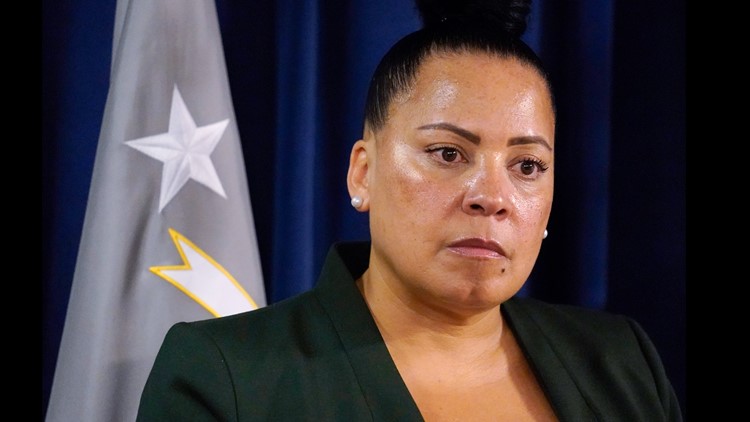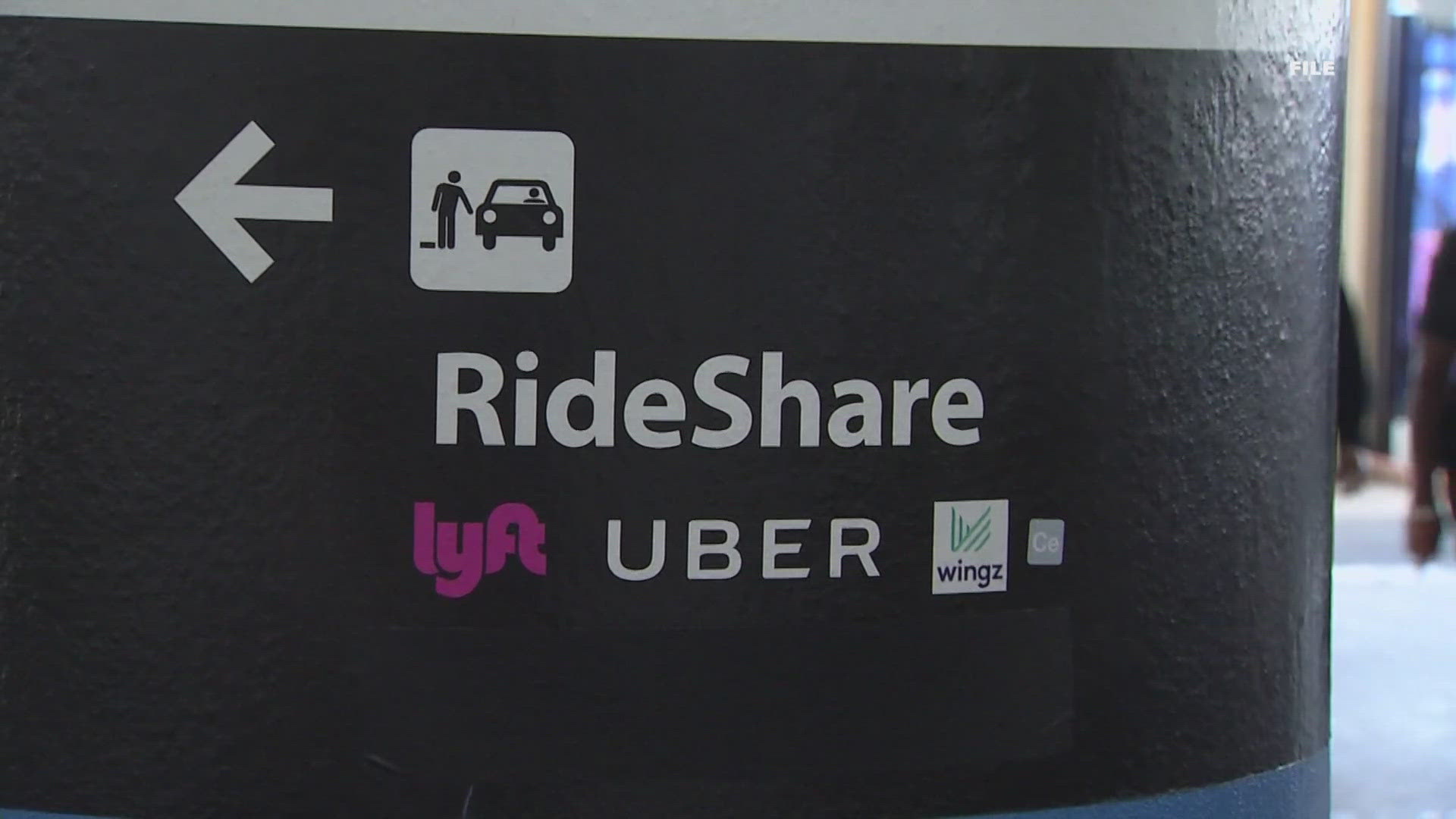BOSTON — The top federal prosecutor in Massachusetts, who has announced her resignation, tried to use her position to influence the outcome of a race for Boston’s district attorney by leaking information aimed at sabotaging the campaign of her preferred candidate's rival, the Justice Department’s internal watchdog said in a report released Wednesday.
The inspector general's 161-page report alleges a broad array of misconduct by U.S. Attorney Rachael Rollins, who was praised by progressives for her approach to law enforcement when she was sworn into office in January 2022 after serving as district attorney for Suffolk County, which includes Boston.
Another federal watchdog agency, the U.S. Office of Special Counsel, found in its own investigative report that on multiple occasions Rollins violated the Hatch Act, a law that political activity by government workers. In a letter to President Joe Biden, Special Counsel Henry Kerner described Rollins' violations as among the “most egregious transgressions” of the law that the agency has ever investigated.
It is the most scathing public condemnation in recent years of a U.S. attorney, a prestigious federal post that has occasionally served as a springboard to higher office. The report alleges not only repeated instances of misconduct and poor judgment by Rollins, but also efforts to mislead Justice Department investigators during interviews in advance of the report.
It accuses her of disclosing to a journalist nonpublic information about a possible Justice Department investigation, soliciting and accepting 30 free tickets to a Boston Celtics game and accepting payment from a sports and entertainment agency for flights and a stay at a luxury resort.
Rollins also routinely used her personal cellphone for Justice Department business, continued to accept contributions to her Suffolk district attorney campaign account after becoming U.S. attorney and attended a political fundraiser featuring Jill Biden, contrary to the advice she had been given and without proper Justice Department approval, the report said.
The watchdog said Rollins tried to meddle in last year's race for Suffolk County district attorney by providing information to media suggesting District Attorney Kevin Hayden was under federal investigation. The report says that the U.S. attorney also helped Hayden's rival, Ricardo Arroyo, by “providing him campaign advice and direction and coordinating with Arroyo on activities to help his campaign.”
Rollins tried to convince her top deputy to release a letter implying that the department was investigating Hayden and when that failed, she leaked sensitive department information to The Boston Herald in an effort to tank his candidacy, the report said.
When asked about that under oath in an interview with the inspector general’s office, Rollins falsely denied being the source, the report said. She only admitted to it after being confronted with text messages showing she was the source o the leak.
Rollins’ lawyer told The Associated Press on Tuesday that Rollins will resign by the end of the day on Friday, saying she “understands that her presence has become a distraction.”
The AP was the first to report in November that the inspector general’s office had opened an investigation into Rollins over her appearance last July at a Democratic National Committee fundraiser. The AP reported that the probe had expanded to examine other issues, such as Rollins' potential use of her personal cellphone for Justice Department business.
It’s an extraordinary rebuke of a top law enforcer who who twice needed Vice President Kamala Harris to cast a tiebreaking vote to be confirmed as U.S. attorney amid stiff Republican opposition. Rollins was the first woman of color to become a district attorney in Massachusetts and the first Black woman to serve as the U.S. attorney in Massachusetts.
“I’m deeply concerned by Ms. Rollins’s misconduct, as detailed in the Inspector General’s and Special Counsel’s reports, and support her immediate resignation,” said Democratic Sen. Dick Durbin of Illinois, chairman of the Senate Judiciary Committee.
It's exceedingly rare for a U.S. attorney to resign amid ethics concerns, and Rollins' move is an embarrassment for the Justice Department under Attorney General Merrick Garland, who pledged to restore its reputation for political independence after tumultuous years under Republican President Donald Trump.
The inspector general's investigation began last year after Sen. Tom Cotton. R-Ark., who had tried to block her confirmation, urged the watchdog to examine whether Rollins’ appearance at the fundraiser at a home in Andover, Massachusetts, violated the Hatch Act.
Her lawyer, Michael Bromwich, a former Justice Department inspector general, said in his statement that Rollins was “profoundly honored” to have served as U.S. attorney and “incredibly proud of all her office has accomplished during that limited time, especially in the areas of gun violence and civil rights.”
He said Rollins was “optimistic that the important work she started will continue but understands that her presence has become a distraction.”
In response to a Boston Herald article from July raising questions about her appearance at the fundraiser, Rollins said in a tweet that she “had approval” to meet first lady Jill Biden and that she left the event early to speak at two community events, adding “nice try though.” One person familiar with discussions before that event, however, told the AP that Rollins was only given limited permission to meet Biden outside the home.
Rollins was elected Suffolk County District Attorney in 2018, defeating the candidate backed by the longtime incumbent and by police groups and becoming the Democratic nominee as part of a wave of progressive prosecutors.
As district attorney, she pledged to fight mass incarceration and racial disparities in the justice system and was outspoken about the need for police reform in the wake of high-profile killings of people of color by law enforcement across the United States. She also pushed ambitious criminal justice changes, most notably a policy not to prosecute certain low-level crimes such as shoplifting.



